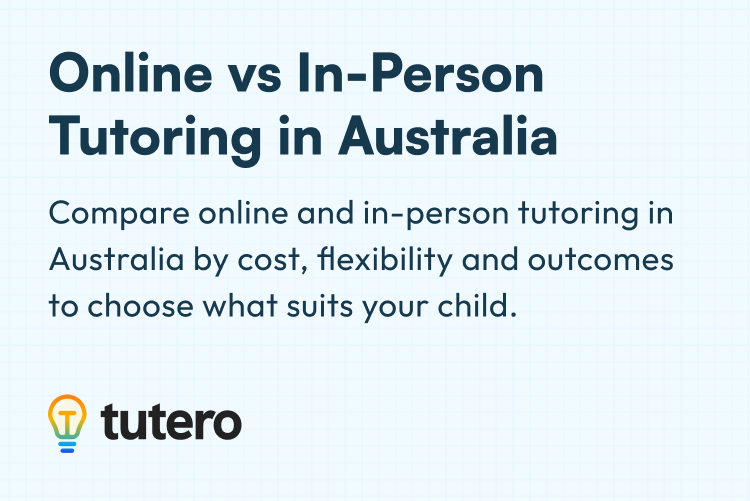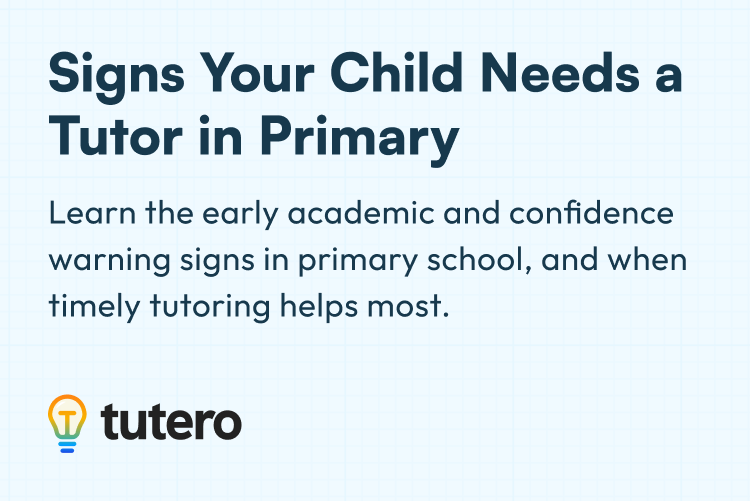As a parent, you want nothing more than for your child to succeed in school. But sometimes, despite best efforts, children can fall behind. If you're worried that your child may be struggling at school, here are five tips to help you know if they're falling behind – and what you can do about it.
Check if the child is having difficulty understanding the concepts being taught in class
Parents and teachers must ensure that children can keep up with the lessons in the classroom. If a your child is struggling with the concepts they are being taught, some adjustments may be necessary. One way to assess if your child is having difficulty understanding topics discussed in class is to ask them specific questions about what was discussed.
For instance, if math was recently addressed in class, a parent or teacher can ask their student what they have learned about addition or subtraction to check their comprehension.
See if the child is struggling to keep up with the pace of the lessons
Assess whether your child is managing to keep up with the pace of the lesson. Some children may be very eager learners and will blaze through the material, while others may need more time to work through concepts or learn at a slower pace. If your child is having difficulty keeping up with their peers or the class's progress, it's vital to take action.
Consider providing additional support by setting aside dedicated time for one-on-one assistance or allowing them to work independently on individual activities. Allowing all students to work in ways that best suit them will help them master lessons more easily.
Determine if the child is having trouble completing assignments on time
If your child is having difficulty completing their assignments on time, some key signs to look for are procrastination, lack of focus in class, and is easily overwhelmed by the task at hand. Procrastination can take the form of getting distracted with online activities or watching television when they should be working.
On the other hand, a lack of focus in class could also be an indicator; you might notice them doodling instead of listening or daydreaming when their teacher is speaking.
Ask the child's teacher for feedback on their progress in class
Being a parent, it's easy to worry about your child's progress in school. Keeping tabs on their grades can help, but there's nothing quite like hearing it firsthand from their teacher. That's why talking to the teacher should be part of every parent's plan to ensure your child gets the educational support they need.
Most teachers are happy to provide feedback. Many will hold one-on-one conferences or meetings so parents can get an up-to-date overview of how the student is progressing in class. Taking advantage of these opportunities will give you insight and reassurance that your child is performing well with their peers academically and socially.
Conclusion
If you have any concerns about your child's academic progress, it is best to talk to the teacher as soon as possible. The teacher can provide some insights on how your child is doing in class and what you can do at home to help them improves. You can also talk to other parents to see if they have noticed any changes in their children's behaviour or academics. By communicating with the teacher and other parents, you will get a better idea of whether or not there is cause for concern and what steps you can take next to help your child succeed academically.
As a parent, you want nothing more than for your child to succeed in school. But sometimes, despite best efforts, children can fall behind. If you're worried that your child may be struggling at school, here are five tips to help you know if they're falling behind – and what you can do about it.
Check if the child is having difficulty understanding the concepts being taught in class
Parents and teachers must ensure that children can keep up with the lessons in the classroom. If a your child is struggling with the concepts they are being taught, some adjustments may be necessary. One way to assess if your child is having difficulty understanding topics discussed in class is to ask them specific questions about what was discussed.
For instance, if math was recently addressed in class, a parent or teacher can ask their student what they have learned about addition or subtraction to check their comprehension.
See if the child is struggling to keep up with the pace of the lessons
Assess whether your child is managing to keep up with the pace of the lesson. Some children may be very eager learners and will blaze through the material, while others may need more time to work through concepts or learn at a slower pace. If your child is having difficulty keeping up with their peers or the class's progress, it's vital to take action.
Consider providing additional support by setting aside dedicated time for one-on-one assistance or allowing them to work independently on individual activities. Allowing all students to work in ways that best suit them will help them master lessons more easily.
Determine if the child is having trouble completing assignments on time
If your child is having difficulty completing their assignments on time, some key signs to look for are procrastination, lack of focus in class, and is easily overwhelmed by the task at hand. Procrastination can take the form of getting distracted with online activities or watching television when they should be working.
On the other hand, a lack of focus in class could also be an indicator; you might notice them doodling instead of listening or daydreaming when their teacher is speaking.
Ask the child's teacher for feedback on their progress in class
Being a parent, it's easy to worry about your child's progress in school. Keeping tabs on their grades can help, but there's nothing quite like hearing it firsthand from their teacher. That's why talking to the teacher should be part of every parent's plan to ensure your child gets the educational support they need.
Most teachers are happy to provide feedback. Many will hold one-on-one conferences or meetings so parents can get an up-to-date overview of how the student is progressing in class. Taking advantage of these opportunities will give you insight and reassurance that your child is performing well with their peers academically and socially.
Conclusion
If you have any concerns about your child's academic progress, it is best to talk to the teacher as soon as possible. The teacher can provide some insights on how your child is doing in class and what you can do at home to help them improves. You can also talk to other parents to see if they have noticed any changes in their children's behaviour or academics. By communicating with the teacher and other parents, you will get a better idea of whether or not there is cause for concern and what steps you can take next to help your child succeed academically.
FAQ
.svg)
.svg)
Online maths tutoring at Tutero is catering to students of all year levels. We offer programs tailored to the unique learning curves of each age group.
.svg)
.svg)
We also have expert NAPLAN and ATAR subject tutors, ensuring students are well-equipped for these pivotal assessments.
.svg)
.svg)
We recommend at least two to three session per week for consistent progress. However, this can vary based on your child's needs and goals.
.svg)
.svg)
Our platform uses advanced security protocols to ensure the safety and privacy of all our online sessions.
.svg)
.svg)
Parents are welcome to observe sessions. We believe in a collaborative approach to education.
.svg)
.svg)
We provide regular progress reports and assessments to track your child’s academic development.
.svg)
.svg)
Yes, we prioritise the student-tutor relationship and can arrange a change if the need arises.
.svg)
.svg)
Yes, we offer a range of resources and materials, including interactive exercises and practice worksheets.
As a parent, you want nothing more than for your child to succeed in school. But sometimes, despite best efforts, children can fall behind. If you're worried that your child may be struggling at school, here are five tips to help you know if they're falling behind – and what you can do about it.
Check if the child is having difficulty understanding the concepts being taught in class
Parents and teachers must ensure that children can keep up with the lessons in the classroom. If a your child is struggling with the concepts they are being taught, some adjustments may be necessary. One way to assess if your child is having difficulty understanding topics discussed in class is to ask them specific questions about what was discussed.
For instance, if math was recently addressed in class, a parent or teacher can ask their student what they have learned about addition or subtraction to check their comprehension.
See if the child is struggling to keep up with the pace of the lessons
Assess whether your child is managing to keep up with the pace of the lesson. Some children may be very eager learners and will blaze through the material, while others may need more time to work through concepts or learn at a slower pace. If your child is having difficulty keeping up with their peers or the class's progress, it's vital to take action.
Consider providing additional support by setting aside dedicated time for one-on-one assistance or allowing them to work independently on individual activities. Allowing all students to work in ways that best suit them will help them master lessons more easily.
Determine if the child is having trouble completing assignments on time
If your child is having difficulty completing their assignments on time, some key signs to look for are procrastination, lack of focus in class, and is easily overwhelmed by the task at hand. Procrastination can take the form of getting distracted with online activities or watching television when they should be working.
On the other hand, a lack of focus in class could also be an indicator; you might notice them doodling instead of listening or daydreaming when their teacher is speaking.
Ask the child's teacher for feedback on their progress in class
Being a parent, it's easy to worry about your child's progress in school. Keeping tabs on their grades can help, but there's nothing quite like hearing it firsthand from their teacher. That's why talking to the teacher should be part of every parent's plan to ensure your child gets the educational support they need.
Most teachers are happy to provide feedback. Many will hold one-on-one conferences or meetings so parents can get an up-to-date overview of how the student is progressing in class. Taking advantage of these opportunities will give you insight and reassurance that your child is performing well with their peers academically and socially.
Conclusion
If you have any concerns about your child's academic progress, it is best to talk to the teacher as soon as possible. The teacher can provide some insights on how your child is doing in class and what you can do at home to help them improves. You can also talk to other parents to see if they have noticed any changes in their children's behaviour or academics. By communicating with the teacher and other parents, you will get a better idea of whether or not there is cause for concern and what steps you can take next to help your child succeed academically.
Lorem ipsum dolor sit amet, consectetur adipiscing elit. Suspendisse varius enim in eros elementum tristique. Duis cursus, mi quis viverra ornare, eros dolor interdum nulla, ut commodo diam libero vitae erat. Aenean faucibus nibh et justo cursus id rutrum lorem imperdiet. Nunc ut sem vitae risus tristique posuere.
Lorem ipsum dolor sit amet, consectetur adipiscing elit. Suspendisse varius enim in eros elementum tristique. Duis cursus, mi quis viverra ornare, eros dolor interdum nulla, ut commodo diam libero vitae erat. Aenean faucibus nibh et justo cursus id rutrum lorem imperdiet. Nunc ut sem vitae risus tristique posuere.


As a parent, you want nothing more than for your child to succeed in school. But sometimes, despite best efforts, children can fall behind. If you're worried that your child may be struggling at school, here are five tips to help you know if they're falling behind – and what you can do about it.
Check if the child is having difficulty understanding the concepts being taught in class
Parents and teachers must ensure that children can keep up with the lessons in the classroom. If a your child is struggling with the concepts they are being taught, some adjustments may be necessary. One way to assess if your child is having difficulty understanding topics discussed in class is to ask them specific questions about what was discussed.
For instance, if math was recently addressed in class, a parent or teacher can ask their student what they have learned about addition or subtraction to check their comprehension.
See if the child is struggling to keep up with the pace of the lessons
Assess whether your child is managing to keep up with the pace of the lesson. Some children may be very eager learners and will blaze through the material, while others may need more time to work through concepts or learn at a slower pace. If your child is having difficulty keeping up with their peers or the class's progress, it's vital to take action.
Consider providing additional support by setting aside dedicated time for one-on-one assistance or allowing them to work independently on individual activities. Allowing all students to work in ways that best suit them will help them master lessons more easily.
Determine if the child is having trouble completing assignments on time
If your child is having difficulty completing their assignments on time, some key signs to look for are procrastination, lack of focus in class, and is easily overwhelmed by the task at hand. Procrastination can take the form of getting distracted with online activities or watching television when they should be working.
On the other hand, a lack of focus in class could also be an indicator; you might notice them doodling instead of listening or daydreaming when their teacher is speaking.
Ask the child's teacher for feedback on their progress in class
Being a parent, it's easy to worry about your child's progress in school. Keeping tabs on their grades can help, but there's nothing quite like hearing it firsthand from their teacher. That's why talking to the teacher should be part of every parent's plan to ensure your child gets the educational support they need.
Most teachers are happy to provide feedback. Many will hold one-on-one conferences or meetings so parents can get an up-to-date overview of how the student is progressing in class. Taking advantage of these opportunities will give you insight and reassurance that your child is performing well with their peers academically and socially.
Conclusion
If you have any concerns about your child's academic progress, it is best to talk to the teacher as soon as possible. The teacher can provide some insights on how your child is doing in class and what you can do at home to help them improves. You can also talk to other parents to see if they have noticed any changes in their children's behaviour or academics. By communicating with the teacher and other parents, you will get a better idea of whether or not there is cause for concern and what steps you can take next to help your child succeed academically.
Lorem ipsum dolor sit amet, consectetur adipiscing elit. Suspendisse varius enim in eros elementum tristique. Duis cursus, mi quis viverra ornare, eros dolor interdum nulla, ut commodo diam libero vitae erat. Aenean faucibus nibh et justo cursus id rutrum lorem imperdiet. Nunc ut sem vitae risus tristique posuere.
Lorem ipsum dolor sit amet, consectetur adipiscing elit. Suspendisse varius enim in eros elementum tristique. Duis cursus, mi quis viverra ornare, eros dolor interdum nulla, ut commodo diam libero vitae erat. Aenean faucibus nibh et justo cursus id rutrum lorem imperdiet. Nunc ut sem vitae risus tristique posuere.


Hoping to improve confidence & grades?

Want to save hours each week on planning?
.png)
.svg)








.svg)


.png)
.svg)






.svg)


.svg)
.avif)


